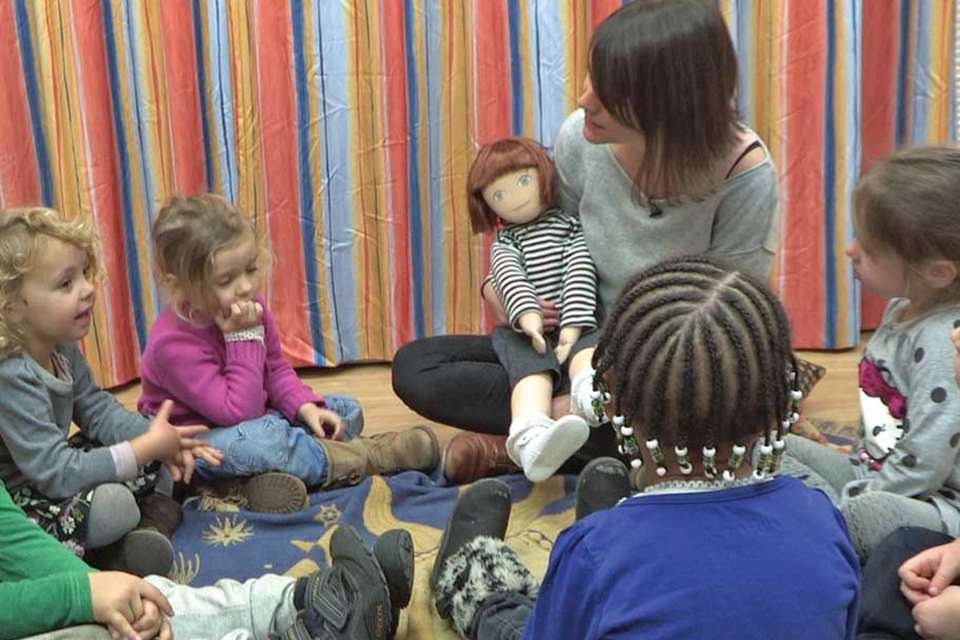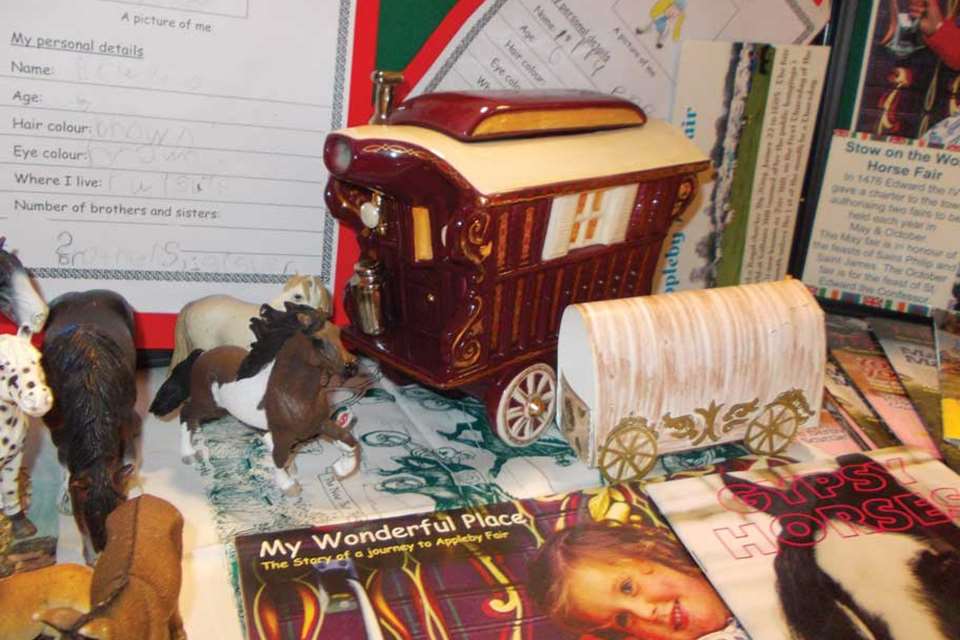A Unique Child: Inclusion - Settled and secure
Monday, January 12, 2015
Focusing on well-being has enabled one nursery to improve outcomes for the vulnerable children in its care. Katy Morton explains.

Stramongate Nursery, winner of this year's Nursery World award for Inclusive Practice, has improved the outcomes of emotionally vulnerable children and their peers by adapting its practice to focus on children's well-being.
With 20 per cent of the children arriving at the nursery in summer 2012 with additional emotional needs, the nursery in Kendal, Cumbria, based in the grounds of a primary school, decided a more reflective and holistic approach was needed to support the children's specific needs.
The nursery's joint manager Kath Finn says that most of the children who arrive at the setting will use force, such as hitting and snatching, as a means to communicate, while one child used to throw chairs.
Wanting to help children feel secure, settled and ready to learn, the nursery has devised, embedded and continues to develop a Well-Being Project that focuses on children's emotional and physical health.
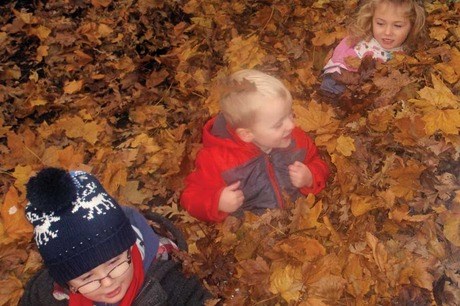
Under the project, the nursery incorporated Ferre Laevers' Well-Being and Involvement Scales into its practice. Staff now discuss and assess every child's well-being each term.
'We had used the scales before, but after the arrival of a number of children with additional emotional needs it seemed a particularly appropriate time to reintroduce them,' explains Ms Finn.
'The practice has allowed staff to re-think their focus on children's emotional capability to be secure, settled and ready to learn ahead of their progress within the Early Years Foundation Stage (EYFS). It's created formal time to ensure information about children is shared within the team.'
As a result of the assessments, the nursery has altered some key person allocations to ensure a better fit for each child, and changed the layout of the setting to make some areas more accessible.
The nursery recently recruited a Polish-speaking member of staff to improve the inclusion of children with Polish as a first language.
For children experiencing emotional difficulties, specific behaviour strategies are implemented at the nursery in line with individual needs and in consultation with their families and other professionals and agencies.
These strategies, which are adapted as the children's needs change, are shared among all members of staff at the setting, along with Reception teachers at Stramongate Primary School, to ensure consistency.
One child, who was using hitting to communicate, was given strategies and support by the nursery, in conjunction with health visitors and the speech and language service, to stop the behaviour and to enable the child to develop close relationships.
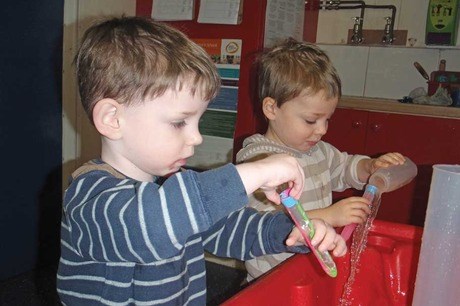
ACTS OF KINDNESS
Another element of the project has included introducing a 'Kindness Tree' to the setting to recognise and reward children's good behaviour. 'The Kindness Tree, which has painted branches, is attached to a wall in the nursery for parents and children to see,' explains Ms Finn. 'Children are given a kindness leaf in recognition of a kind action. The leaf, which staff write the child's kind action on, is attached to the tree and shared with their peers at our daily circle time.'
Examples of why children might receive a 'kindness leaf' include willingness to give up a toy, saving a seat, taking turns, comforting another when they are hurt or making a real effort with a new child.
'The children are always very pleased and excited to see they have a leaf on the tree and proud to share it with their parents. The tree also helps staff focus on wanted behaviour.'
To open up methods of communication, the nursery introduced an 'empathy doll' called Rosie to the setting two mornings a week to give children a medium through which to discuss the feelings and needs of others in a non-invasive way. Ms Finn says that Rosie, who continues to visit the nursery, often receives invites to the children's birthday parties.
For the children with severe language delays, staff at the setting use Signalong sign language, which they credit with giving children a voice, and for those who use force as a means to communicate it is an alternative to hitting to gain attention.
As part of the Well-Being Project, the nursery has signed up to a number of initiatives aimed at improving the health and fitness of all children in its care, as well as charity appeals and events, designed to encourage children to consider the needs of others.
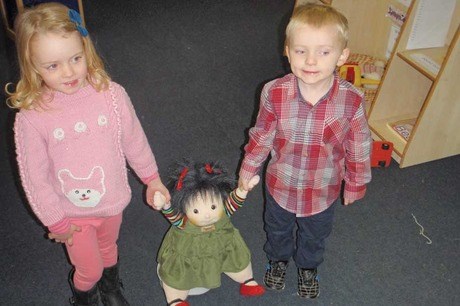
SIGNIFICANT PROGRESS
The nursery reports that the more reflective approach to its practice has not only made a significant difference to the outcomes of emotionally vulnerable children but to all those in their care, and continues to do so.
According to Ms Finn, as a result of the Well-Being Project and multi-agency working, the hurtful behaviour of children from the summer 2012 intake fell by 75 per cent. Their developmental age also increased.
The same children are more empathetic, and continue to make significant progress within the seven areas of the EYFS, which the nursery says has been heart-warming to be a part of.
'A child with developmental delay due to lack of stimulation is now almost level with his peers, and his parents' parental capacity has increased,' says Ms Finn. This progress she puts down to working closely with the child and joining up with other professionals including social care, the police and the Drug Alcohol and Sexual Health (DASH) service.
Ms Finn claims that, as a result of the project, children are more prepared for school and better able to cope in a classroom. For instance, she says, one child who used to throw chairs will now transfer to school without the risk of immediate exclusion.
'The improved outcomes of children benefits our feeder school too, which the nursery has close links with, as children leave nursery in a far better place to learn than they may have otherwise done,' adds Ms Finn.
Nursery children participate in several activities with pupils from the school's Reception class, including World Book Day and joint Christmas performances, to help aid a smooth transition to school. The nursery also uses facilities at the school - its adventure playground and nature area.
'We are extremely proud of our children, who have demonstrated great emotional resilience,' says Ms Finn. 'The project, recognised by Ofsted as succeeding in supporting the emotional well-being of children, has also helped us to grow as a setting.
'Staff are benefiting through improved reflective practice in a range of areas, improved sharing of information and the development of a number of initiatives.'
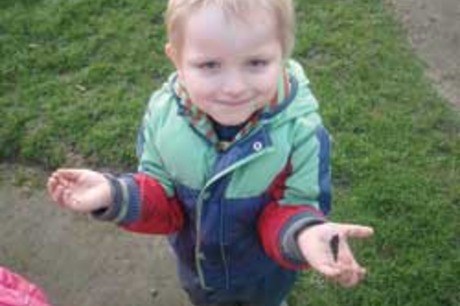
CASE STUDY: CHILD B
Child B was 31 months old when he started at Stramongate Nursery last spring. On arrival, his level of development was between the 16-26 month and 22-36 month age bands.
According to the nursery, his mother was initially reluctant to let him go to the setting, so his attendance at the beginning was very poor. Staff at the nursery addressed this by working with the child's mother and his health visitor.
At the outset, Child B's means of communicating when people entered his space was to hit them, a behaviour learned and reinforced through the actions of his older sister. He was also very reluctant to speak in nursery.
The nursery reports that gradually the child gained confidence and started to engage in joint play. However, he began looking very pale, was poorly dressed and appeared to be losing weight.
When social services became involved, it emerged there were problems within the family of domestic violence, with police involvement, and alcohol abuse. Through this period, Stramongate Nursery continued to support the child.
It enabled him to work through things by providing resources, both within small-world play and role play, for him to re-enact the police removing his stepfather. Staff also worked closely with the primary school that his sister attended, social care, and the health visitor.
After four-and-a-half terms of being at the nursery, Child B left with a development age of 30-50 months.
Nursery staff are now working closely with their feeder school to support Child B's transition to school.
Staff at the nursery say he now frequently plays with other children, speaks freely and is confident enough to share his love of nature with his peers, supporting them when they are unsure about bugs and slugs.
While problems at home remain, and the nursery is still working with health and social care, staff say that Child B appears to be stable, with his well-being scores maintained and his development continuing.







